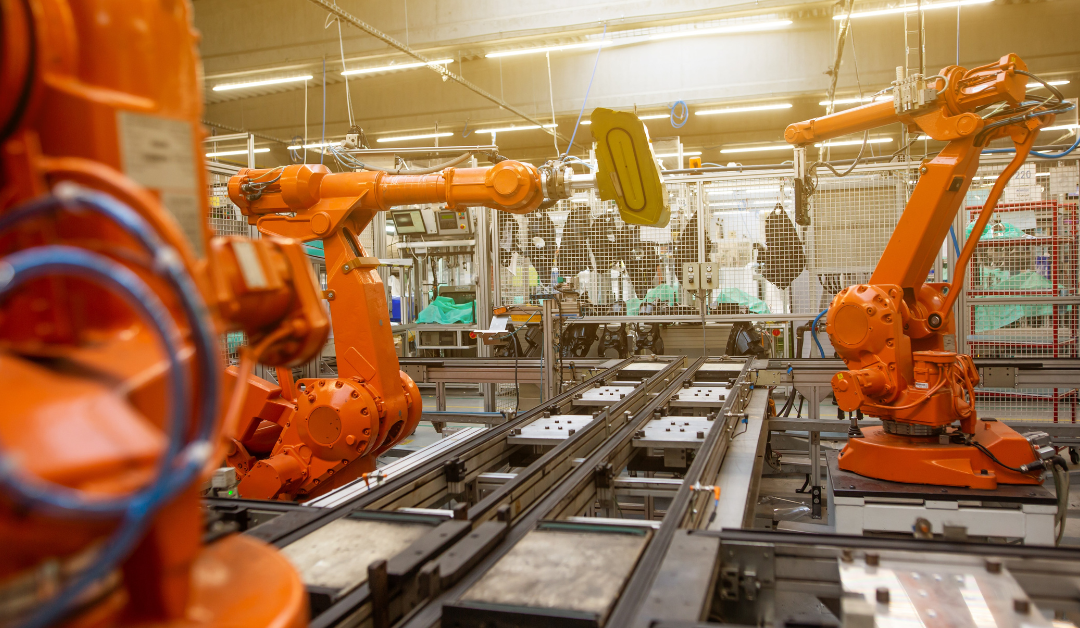After attending two conferences, similar challenges surface between these industries.
I recently attended the World Travel Market (WTM) in London and then, a week later, the Manufacturing Week in Liverpool. It was very interesting to see how these two market sectors may seem vastly different at first glance, but have similar challenges and are mainly focused on people. As the week went on, it became apparent that they have several key things in common.
The key takeaways for manufacturing are akin to those I found at WTM the week before. These include the difficulty in hiring and having to do more with less (people).
Baseline for Commonality
First and foremost, both industries rely heavily on technology. In the Travel industry, technology is used to facilitate the booking and planning of trips, as well as to improve the overall travel experience. This can include everything from online bookings with payments and mobile apps, to digital itineraries and virtual reality experiences.
Similarly, the Manufacturing industry relies heavily on technology for a variety of purposes. This can include the use of automation and robotics to improve efficiency and productivity, plus the use of specialised software and machinery to produce goods.
Stick with me as we dive into some of the stats shared at Manufacturing Week.
An Appetite for Digital
77% of manufacturers are at least 50% cloud-based in terms of infrastructure
97% have implemented at least one next-generation technology
But only 23% of manufacturers have achieved more than a basic level of IT and OT convergence
Sustainability – First Agenda
33% of manufacturers view decarbonisation as high importance
46% already implementing their decarbonisation plans
25% will start within the next 12 months
17% aiming to start within the next 24 months
Recruitment Challenges & Shifting Priorities
55% of manufacturers have seen their recruitment efforts “extremely” or “highly” impacted.
Recruiting and retaining skilled staff is the biggest obstacle manufacturers face. There are an astonishing 91,000 vacant manufacturing jobs in the UK.
Michael Page explains,“recruitment for top talent in manufacturing is highly competitive,” and manufacturers need to invest in future skills and digital technologies to operate in this market.
Travel’s Movement Towards the Cloud
“A 2019 survey by Global Data on the emerging technology trends in the travel industry shows that about 81% of travel and tourism companies have already invested in cloud services, while 18% is planning to adopt over the next three years.”
Technology solutions aid travel brands in reducing costs whilst offering personalisation and designing a seamless customer experience. With the right technology onboard, operators are equipped with flexibility, scalability, access from anywhere, performance insights leading to higher profitability and a more personalised user experience, just to name a few benefits. These plus additional features are necessary to remain competitive in the travel space and deliver on traveller expectations.
2022 Digital Transformation Statistics Across Industries
- $1.5 trillion was spent on digital transformation globally in 2021.
- Global spending on digital transformation is expected to reach $6.8 trillion by 2023.
- The top benefits of adopting a digital model are it improves operational efficiency (40%),
- Allows for faster time to market (36%), and helps meet customer expectations (35%),
- 56% of CEOs said that their digital improvements have already improved profits.
Without adopting a digital transformation strategy, companies are likely to lose market share. Many businesses believe that they are not fully prepared for the changes ahead, but it is widely accepted that disruption is upon us. The looming statistics on successful digital transformation implementations are low, but we can factor in how this is still a recent shift in strategy with businesses identifying profit gains and rise in satisfaction sentiments.
Failure Rates
Why does digital transformation fail? Unfortunately, proper storage of data, managing expectations with goals, communicating with employees, and a few pesky folks resistant to change can really hold up an implementation. It is vital to gather stakeholders that have a vision for rooted change and to ensure adoption of a new technology is not for vanity reasons, rather with the goal of increased customer experience resulting in higher retention rates and profits.
Slow Pace of Travel Industry Digital Transformation
In general, the travel industry is behind in adopting technology trends. The airline and short-term rental sectors have led the way, but the overall pace has been slow. The development has been held back by loads of manual procedures and administration that have not been automated. Digital transformation can be a vague term, and we must realise that companies will be entering at different stages and inequivalent capabilities. As we head into 2023 with travel brands ready to level up with streamlining, automation and ease of bookings, we are sure to see momentum in an upper direction.
Summary
Another key commonality between the Travel and Manufacturing markets is the need for effective supply chain management. In the Travel industry, this can involve coordinating the transportation, accommodation, and activities for millions of travellers each year. In the Manufacturing industry, it involves managing the procurement of raw materials, the production process, and the distribution of finished goods.
Both industries also require careful planning and organisation in order to operate successfully. In the Travel industry, this can involve predicting demand and scheduling flights and hotel rooms, as well as ensuring that travellers have a smooth and enjoyable experience. Contrasting, in the Manufacturing industry, it involves designing and implementing production processes, as well as ensuring that finished goods meet quality standards.
Overall, while the Travel and Manufacturing markets may seem vastly different at first glance, they actually have several key things in common. With the aim of empowering employees, optimising operations, enhancing products with engaged customers, technology will lead the way.

